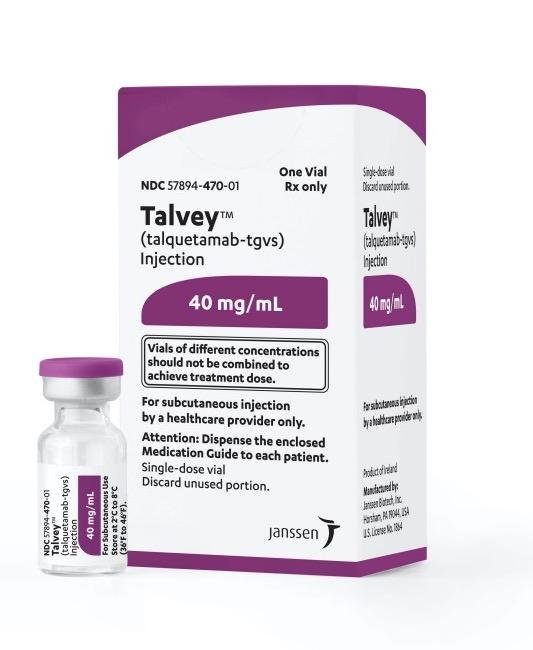Talvey Disease Interactions
There are 2 disease interactions with Talvey (talquetamab).
Bispecific T-cell engagers (applies to Talvey) infections
Moderate Potential Hazard, Moderate plausibility. Applicable conditions: Infection - Bacterial/Fungal/Protozoal/Viral
Teclistamab and talquetamab can cause severe, life-threatening, or fatal infections. Patients should be monitored for signs and symptoms of infection prior to and during treatment. Any infection should be treated appropriately. Administer prophylactic antimicrobials according to clinical guidelines.
References
- (2022) "Product Information. Tecvayli (teclistamab)." Janssen Biotech, Inc.
- (2023) "Product Information. Talvey (talquetamab)." Janssen Biotech, Inc.
Bispecific T-cell engagers (applies to Talvey) renal/hepatic
Moderate Potential Hazard, Moderate plausibility. Applicable conditions: Liver Disease, Renal Dysfunction
The effects of severe renal impairment (eGFR less than 30 mL/min) on the pharmacokinetics of teclistamab and talquetamab are unknown. Moderate to severe hepatic impairment (total bilirubin greater than 1.5 times ULN with any AST) on the pharmacokinetics of teclistamab are unknown. Severe hepatic impairment (total bilirubin greater than 3 times ULN with any AST) on the pharmacokinetics of talquetamab are unknown. Additionally, teclistamab and talquetamab have caused hepatotoxicity, including fatalities. Caution is advised in patients with renal and hepatic impairment. Monitor liver enzymes and bilirubin at baseline and during treatment as clinically indicated.
References
- (2022) "Product Information. Tecvayli (teclistamab)." Janssen Biotech, Inc.
- (2023) "Product Information. Talvey (talquetamab)." Janssen Biotech, Inc.
Talvey drug interactions
There are 392 drug interactions with Talvey (talquetamab).
More about Talvey (talquetamab)
- Talvey consumer information
- Check interactions
- Compare alternatives
- Pricing & coupons
- Drug images
- Side effects
- Dosage information
- During pregnancy
- FDA approval history
- Drug class: miscellaneous antineoplastics
- En español
Related treatment guides
Drug Interaction Classification
| Highly clinically significant. Avoid combinations; the risk of the interaction outweighs the benefit. | |
| Moderately clinically significant. Usually avoid combinations; use it only under special circumstances. | |
| Minimally clinically significant. Minimize risk; assess risk and consider an alternative drug, take steps to circumvent the interaction risk and/or institute a monitoring plan. | |
| No interaction information available. |
Further information
Always consult your healthcare provider to ensure the information displayed on this page applies to your personal circumstances.


